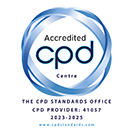26 April 2016
Prof David Mottram: Doping in Sport - What Does the Future Look Like?
Organised by:
SCI's Membership Affairs Committee
SCI, London, UK
Registration Closed
This event is no longer available for registration.
Synopsis
- Between January and September 2015, UKAD carried out 3,685 tests as part of their domestic and international Anti-Doping Testing Programme, leading to 13 sanctions being issued
- More than 1 in 10 athletes might be doping according to World Anti-Doping Agency (WADA) chief
- In November 2015 Six countries were ruled to be in breach of the WADA codes and a further six countries were placed on the watch list, with a review to take place in March 2016
On Tuesday 26 April 2016, SCI’s Public Evening Lecture will enter the world of sport, examining the facts and fiction of doping and anti-doping. The lecture will be delivered by Prof David Mottram, education advisor for UK Anti-Doping (UKAD). In his presentation, he will review some of the key events in the evolution of doping and anti-doping that have influenced our present approach to the problem.
Doping and Anti-Doping in Sport
Doping in sport goes back as far as there has been sport, with dangerous substances, such as Strychnine and Nitro-Glycerine, being used until the early 20th Century. Over recent months various athletes have been banned for doping, countries have been ruled to have breaches Anti-Doping codes and several senior officials are being investigated for bribery and doping cover-ups. And the scale of the problem only seems to be getting bigger.
Prof David Mottram, Emeritus Professor of Pharmacy Practice at the School of Pharmacy and Biomolecular Sciences, Liverpool John Moore’s University, will provide an insight into the world of doping in sport and detail the anti-doping rules and regulations that are in place to combat this threat. The international rules and regulations for the management of doping in sport, based on the World Anti-Doping Agency (WADA), will be explained. This will include a brief overview of the list of prohibited substances and methods, which are reviewed and updated annually following a comprehensive review. The 2016 list has been in effect since 1 January 2016 and forms part of the foundation of the World Anti-Doping Code. Moving on, the systems in place for testing and sanctioning athletes will be illustrated and finally, the evidence for the extent of drug misuse in sport will be explored with a view to what the future may hold.
Programme
Accessibility Grants
SCI accessibility grants are available to support SCI members with disabilities, long term health conditions, those who require a carer, and members who are nursing parents to attend SCI events. Download an application form to apply for a grant.
Venue and Contact
SCI
14/15 Belgrave Square
London
SW1X 8PS
Conference Team
Tel: +44 (0)20 7598 1561
Email: conferences@soci.org
Fees
Join SCI for its Public Evening Lecture series which are free and open to all.
Become an SCI Member and save on this and future events
See Membership OptionsSign up as an Event Member to join this event. SCI Full or Student Members receive discounts on event registrations
Booking Process/Deadlines
CPD Info
SCI Members attending this meeting are able to claim CPD points.
Additional Info
About the speaker
Prof David Mottram, served on the pharmacy planning committee for the 2002 Manchester Commonwealth Games and was a member of the Medical Services Group for the London Organising Committee (LOCOG) in preparation for the 2012 London Olympic and Paralympic Games. Currently, he is an education advisor for UK Anti-Doping (UKAD). He has designed and developed online education programmes directed at healthcare professionals for UKAD, the International Olympic Committee, and the WADA. His current specialist area for research and teaching is centred on the use and misuse of drugs in sport and he is collaborating with colleagues at Qatar University to develop and deliver undergraduate and postgraduate education programmes on drugs in sport.
His book Drugs in Sport was first published in 1988 and is now in its sixth edition.





